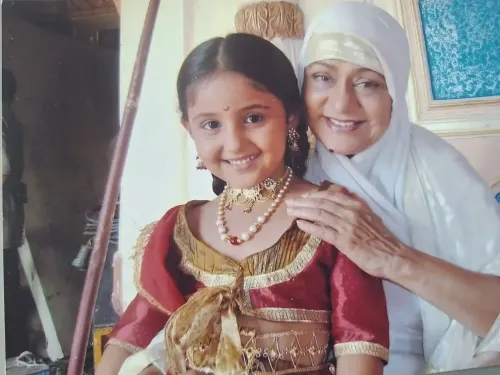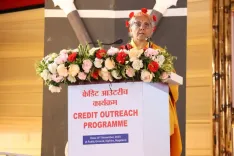Did the Kerala HC Grant Relief to the Makers of 'Haal'?

Synopsis
Key Takeaways
- The Kerala High Court provided partial relief to the film 'Haal'.
- Filmmakers must make two specific modifications for reconsideration.
- The CBFC's initial demands included six cuts for certification.
- The film addresses an interfaith love story, raising cultural sensitivities.
- Justice VG Arun challenged the CBFC's rationale for censorship.
Kochi, Nov 14 (NationPress) The Kerala High Court has provided partial relief to the creators of the Malayalam film 'Haal' by annulling a directive from the Central Board of Film Certification (CBFC) that mandated six edits and limited the film to an Adults-only (A) rating.
Nonetheless, the Court has instructed the filmmakers to implement two specific modifications before the film can be reassessed for certification.
Justice VG Arun, who screened the film prior to issuing the ruling, determined that the CBFC's demand for six cuts to grant even an A certificate was unjustifiable.
The film, which narrates an interfaith love story between a Muslim boy and a Christian girl, was flagged by the CBFC for its potentially sensitive portrayals.
The Court's directives included: the removal of a scene depicting the consumption of beef biriyani, the excision of dialogues perceived as derogatory to certain cultural organizations, along with the blurring of visible ‘rakhi’, and the deletion of a dialogue stating - "Adhil thanne... matha thilekkumii kanu...".
Once these changes are implemented, the filmmakers may re-approach the CBFC, which is obligated to reach a decision within two weeks.
The producers contested the CBFC’s previous ruling, which stated that an A certificate could only be granted after six specific alterations, including the deletion of a song featuring the heroine in Muslim attire and blurring the name of an institution.
Senior counsel for the petitioners contended that the Board overlooked the film's overall narrative, asserting that it contained no explicit content or violence meriting an A certificate.
The CBFC, represented by the Additional Solicitor General (ASG), defended its position, claiming that the film had crossed critical lines by engaging in sensitive religious contexts and contained scenes that could provoke unease among communities.
Justice Arun, however, questioned whether mere unease could justify censorship.
The film also faced opposition from two outside groups.
The Catholic Congress, Thamarassery Diocese, alleged that the film depicted the Bishop as endorsing an interfaith relationship without consent and accused it of promoting "love jihad".
Another petitioner, an RSS functionary, claimed the film made defamatory references to the organization and pushed anti-national, discordant themes.
The Court awaits the CBFC's new decision following the mandated edits.









